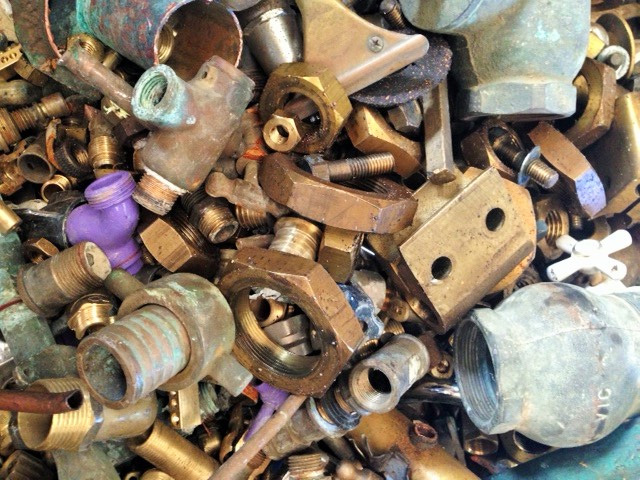Last week we explored the recycling and repurposing which three common metals (aluminium, copper, and steel) undergo once you sell them to a scrap company like ours. In this article, we look at the recycling process of three more commonly scrapped metals and how they are repurposed.
Brass
Because brass is an alloy of copper and zinc, primary brass manufacturing is subject to the same energy intensive processes involved in copper ore extraction and zinc mining. Minimizing copper mining in particular is one of the chief advantages of recycling brass as copper mining releases toxic gases into the atmosphere and can cause significant damage to the environment. Recycling brass is incredibly energy efficient and uses just 10% of the energy required in copper ore extraction. During the recycling process, brass is shredded to create a larger surface volume (making it more energy efficient to melt), melted and purified, then poured into ingots ready for repurposing. Almost every brass product on the market today (screws, buttons, keys, taps, doorknobs, pipe fittings etc.) is made from around 90% recycled materials and in the UK, manufacturers use 100% recycled materials.
Tin
Although it is often confused with aluminium and steel, tin is a relatively scarce element most commonly used as a coating for steel cans. Tin can be recycled over and over again, yet the global recycling rate for tin is relatively low; around 8%. Recycling 1 ton of tin also saves 1.5 tonnes of tin ore being mined so realistically, if all the tin in the world were properly recycled, and we had enough to begin with, there would never be a need to engage in environmentally harmful and energy intensive tin ore mining practices again. Once ‘tin’ cans arrive at the recycling plant, the tin coating is stripped of the steel can by being dipped in a caustic solution known as sodium stannate, then subjected to electrolysis before being melted into ingots of almost pure tin. These recycled ingots tend to be used in chemical and pharmaceutical industries or alloyed into other metals.
Iron
Iron is one of the most commonly recycled materials in the world and this process saves an enormous number of resources. Every ton of recycled iron saves around 1,150kgs of iron ore, 635kgs of coal and 54kgs of limestone. Like most other metals, iron can be recycled infinitely and some recycled iron is used in almost all alloy manufacturing.
If you have iron, tin, or brass scrap lying around your home or business, call Metal Men Recycling on 03 5941 6677, we offer cash for scrap metal and provide collection services throughout Melbourne.











